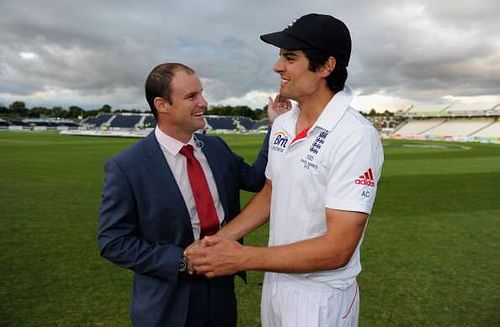
How English cricket has been hampered by repeated changes in personnel

It has been forty-five months since their incumbent Team Director Andrew Strauss bid adieu to international cricket. And his exit originated a procession of England retirees over this period – just eclipsing three and a half years.
His leave left a hole so deep that despite after so long, his team seems to be sighing for the services of a specialist opener matching his and captain Alastair Cook’s quality. Engaging in exactly a hundred Tests for England – half as captain – Strauss gave up his place in the Test team on enduring a winless three-Test campaign at home to South Africa.
An opener of the more classical approach, much like Cook, the stability provided by him and his partner at the top of the order was more reliable than other opening pairs prevalent at the time, notably the Australian duo of David Warner and Ed Cowan or South Africa’s Graeme Smith and Alviro Peterson.
Though that was the only farewell that England had to conduct in 2012, the following four years – nearly – brought along with them a group who would quickly jump to conclusions on careers well spent in the England jersey.
The first to follow was the pleasant off-spinner Graeme Swann, whether renowned more for his merry laughter or a cluster of wickets in his opening over of a game, difficult to tell. But Swann was what he was – a subtle tweaker and a handy hitter down the order, with sharp slip fielding abilities.
A haul of 255 wickets in 60 games over only five years of Test cricket from 2008 meant his contemporary Monty Panesar, who debuted two years earlier, has played merely half a century games, the last of which immediately succeeding Swann’s final outing during the Ashes of 2013-14 in Australia.
Much like his off-field behaviour was comical, the eloquent Swann pulled out a surprise from his bag of tricks after England surrendered the urn in Perth, thereby calling it quits.
Swann excelled – it is harsh to say that he just survived – in an era which slowly saw the emergence of young spinners mesmerized more towards the mystery deliveries rather than the conventional ones. The doosra was the only weapon he consumed when he planned a change for the batsmen, and never tried a flipper or carrom ball to deceive them.
Though he always played the game with a fine smile, Swann devoted all his seriousness in trying to bowl England to victory.

And just two Tests after Swann left, it was the unpredictable treatment of the adventurous Kevin Pietersen that resulted in another departure from the blanked English dressing room.
New ECB managing director Paul Downton dumped Pietersen on account of rebuilding the demoralised squad which got thrashed 5-0 in Australia, as the board sought to recover from the jolt sans the controversial right-hander.
Pietersen’s formula of an aggressive attitude right since the inception of his innings, something missing from the English team during his days, only seems to be replicated now by the young brigade of Ben Stokes and Jos Buttler. Though Pietersen has not officially retired yet – he plans a South Africa career too, the land where he was born – it is no mystery that he will never return.
He can never add to his 277 international caps, at least not for England. In England’s only world cup-winning campaign, the ICC World T20 in 2010, Pietersen was declared the Man of the Tournament for his heroics at number three. Two years on from his planned departure, Pietersen bides his time contesting in T20 leagues around the world.
One year later, in May 2015, when the Test regulars prepared for a hectic journey across the summer, middle-order bat Jonathan Trott came back into the England reckoning following a one and a half year hiatus from the game due to stress-related illness.
With only one fifty-plus score in six innings as an opener in the West Indies, excessive pressure from the media back home prompted Trott to resign out of poor form, and thus, retire. Only six years was how long his career lasted.
Most of his one-day career was spent in accusations that he was too slow a player for modern limited-overs cricket, but they ignored his consistency in the format – just like in Tests – as a time came when he became one of only two contemporary batsmen to average in excess of 50 in both formats.
All this and another month had barely passed before twin announcements of quitting awaited England fans – both by wicket keepers. Craig Kieswetter declared his smacked eye socket and nose and during the preceding English season would never allow him to play his favourite game again.
Like Strauss, Pietersen and Trott, he preferred England to his country of birth. Man of the Match in the final of the ICC World T20 2010, Kieswetter ended his England career on 46 ODIs and 25 T20s.